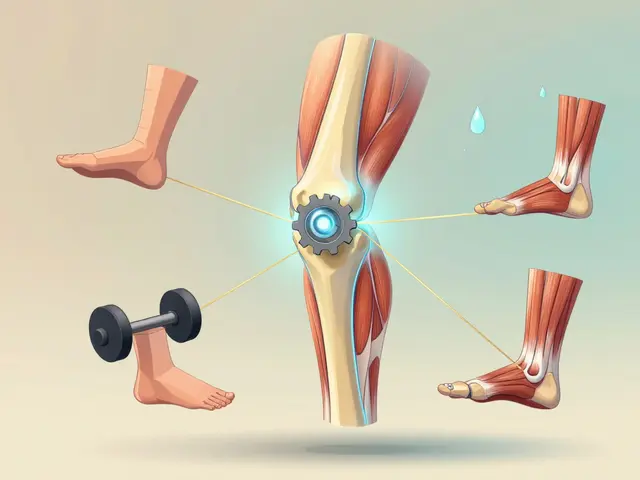Chlorthalidone: What It Is, How It Works, and What You Need to Know
When your doctor prescribes chlorthalidone, a long-acting diuretic used to treat high blood pressure and fluid retention. Also known as a thiazide-like diuretic, it works by helping your kidneys flush out extra salt and water—lowering blood pressure and reducing swelling. Unlike some other diuretics that wear off quickly, chlorthalidone lasts a full day, which is why many doctors prefer it for steady, 24-hour control.
It’s not just any water pill. Chlorthalidone is often chosen over hydrochlorothiazide because studies show it does a better job at lowering the risk of heart attacks and strokes over time. It doesn’t just reduce pressure—it helps protect your heart and blood vessels. People with heart failure, kidney disease, or stubborn high blood pressure often end up on this drug because it’s reliable. But it’s not without trade-offs. You might notice more frequent bathroom trips, dizziness when standing up, or lower potassium levels. That’s why doctors often check your blood work regularly when you’re on it.
Chlorthalidone doesn’t work alone. It’s frequently paired with other blood pressure meds like ACE inhibitors or calcium channel blockers to get results faster. If you’re also taking NSAIDs like ibuprofen, they can make chlorthalidone less effective. And if you’re on lithium or digoxin, your doctor needs to monitor you closely—chlorthalidone can change how those drugs behave in your body. It’s also worth noting that this drug isn’t for everyone. If you’re allergic to sulfa drugs, have severe kidney problems, or can’t keep your potassium levels stable, your doctor will likely pick something else.
What you’ll find in the articles below are real comparisons and practical insights. You’ll see how chlorthalidone stacks up against other diuretics, what side effects people actually experience, and how it fits into broader treatment plans for heart health. There are also guides on managing electrolyte balance, avoiding interactions, and understanding why some patients respond better than others. Whether you’re just starting this medication or have been on it for years, the posts here give you the no-fluff facts you need to stay in control.
Compare Combipres (Chlorthalidone and Clonidine Hydrochloride) with Alternatives
Compare Combipres (chlorthalidone and clonidine) with safer, more effective alternatives like lisinopril/HCTZ, amlodipine/olmesartan, and losartan/HCTZ. Learn when to switch and what works best for your health.



